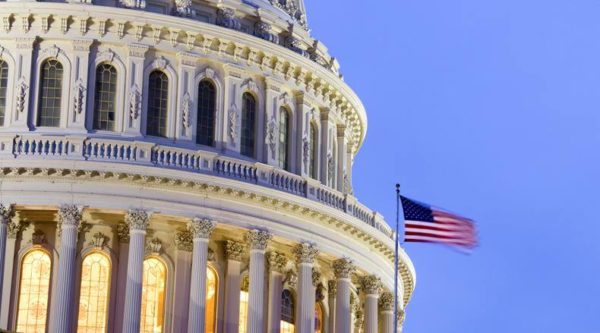
- Details
- By Native News Online Staff
WASHINGTON — After months of delay, the 116th Congress on Monday night passed a $908 billion Coronavirus Response and Relief Supplemental Appropriations Act.
The coronavirus relief package is about a third less than what was proposed by House Democrats. Many Democrats say this relief package does not provide enough funding to a nation hurt severely because of the Covid-19 pandemic.
The COVID-19 relief package passed last night extends unemployment benefits through the early spring, and provides support for small businesses, schools, healthcare, nutrition, rental assistance, childcare, broadband, the Postal Service, as well as funding to help distribute Covid-19 vaccines.
The key component for the average American is direct stimulus payments of $600 to individuals who earned up to $75,000 in 2019 or less than $150,000 per couple. So, a family of four will receive $2,400. Those individuals who earned more than $75,000 and up to $99,000 would have a reduced stimulus check. Individuals who made more than $99,000 are ineligible for the stimulus program.
According to the Treasury Department, the checks could be sent out as early as next week.
It will also extend federal unemployment benefits of up to $300 per week, among other measures.
The relief package includes an additional $1 billion for Indian Health Service to assist tribal communities throughout Indian Country.
“Arizona’s tribal communities have been hit especially hard by the pandemic and battled it with too little help from the federal government. Through work across the aisle with Senator Murkowski and others, we were able to ensure that there is dedicated funding for tribal health care, education, broadband, and other needed relief to continue fighting this pandemic,” newly elected Sen. Mark Kelly (D-AZ) said.
The relief package included broadband assistance for Indian Country, as mentioned by Kelly.
“This legislation that we’re going to be voting on includes $7 billion dollars for more broadband priorities; $1 billion dollars for connectivity issues for Tribal country,” Sen. Maria Cantwell (D-WA) said in speech on the Senate floor prior to Monday night’s vote.
Editor's Note: This is a developing story. With the Coronavirus Response and Relief Supplemental Appropriations Act being almost 5,600 pages, a more thorough examination of its implications to Indian Country is underway. Additional information will be provided as it becomes a available.
More Stories Like This
Native News Weekly (August 25, 2024): D.C. BriefsDeb Haaland Earns Endorsement From Communications Workers of America Local 7076
University Soccer Standout Leads by Example
Two Native Americans Named to Democratic Congressional Campaign Committee's“Red to Blue” Program
Cheyenne River Youth Project Hosts Young Women’s Winter Camp as Part of Lakota Culture Internship
Help us defend tribal sovereignty.
At Native News Online, our mission is rooted in telling the stories that strengthen sovereignty and uplift Indigenous voices — not just at year’s end, but every single day.
Because of your generosity last year, we were able to keep our reporters on the ground in tribal communities, at national gatherings and in the halls of Congress — covering the issues that matter most to Indian Country: sovereignty, culture, education, health and economic opportunity.
That support sustained us through a tough year in 2025. Now, as we look to the year ahead, we need your help right now to ensure warrior journalism remains strong — reporting that defends tribal sovereignty, amplifies Native truth, and holds power accountable.
 The stakes couldn't be higher. Your support keeps Native voices heard, Native stories told and Native sovereignty defended.
The stakes couldn't be higher. Your support keeps Native voices heard, Native stories told and Native sovereignty defended.
Stand with Warrior Journalism today.
Levi Rickert (Potawatomi), Editor & Publisher

